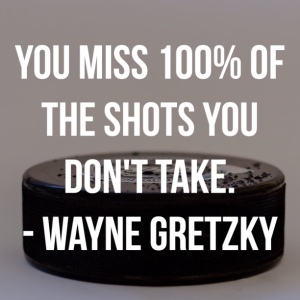Why I think TheDAO is a Success
The usual plague of so-called “experts” have come out of the woodwork following today’s attack on TheDAO, to tweet, blog and bloviate their hindsight-informed opinions about TheDAO’s “failure” and the implications for the future of smart contracts (despite the fact that most of them barely can barely string together a coherent description of what a smart contract is, let alone write one).
I don’t view TheDAO as a failure. I view it as an experiment that has reached its conclusion. We learnt something important today – we learned that this particular configuration of a DAO doesn’t work. Future DAOs and smart contracts will be better because of what we’ve learned, from the specific bug that the attacker tried to exploit, to the insights we’ve gleaned into voting incentives and DAO governance. We’ve learnt a lot about the benefits of being able to upgrade smart contracts after they’ve been deployed, and the lawyers and regulators have plenty of food for thought and debate, with all the legal questions that have been raised by both TheDAO itself and the proposed use of a hard fork to return investors’ ether.
It’s very easy to criticise the Slock.it team but they got a lot of things right and it appears that, in the end, all TheDAO’s investors will get their ether back (albeit with the assistance of the Ethereum community in implementing a hard fork). That’s no mean feat and they deserve credit and respect for what they achieved.
 Most experimentation and innovation happens in private, and all the wrinkles are ironed out long before the final product is unveiled. However, in this area – cryptocurrencies, blockchains, smart contracts and DAOs – the experimentation and innovation is happening in the open.Bitcoin wasn’t invented in a corporate R&D lab. Ethereum was funded by the venture crowd, not a venture capitalist. The downside is that we get to see how the sausages are made and any mistakes are public, but the upside is that anyone can participate, and the degree and pace of innovation – its velocity, for want of a better term – is far higher as a result.
Most experimentation and innovation happens in private, and all the wrinkles are ironed out long before the final product is unveiled. However, in this area – cryptocurrencies, blockchains, smart contracts and DAOs – the experimentation and innovation is happening in the open.Bitcoin wasn’t invented in a corporate R&D lab. Ethereum was funded by the venture crowd, not a venture capitalist. The downside is that we get to see how the sausages are made and any mistakes are public, but the upside is that anyone can participate, and the degree and pace of innovation – its velocity, for want of a better term – is far higher as a result.
If we want to reap the benefits of open innovation, we also have to embrace the downsides, including the experiments that we learn from, even when the outcome isn’t what was expected or hoped for; we have to applaud those who try, even if they don’t succeed; and, above all, we should elevate those who do above those who merely talk, tweet and blog.
I invested a small amount of money in TheDAO because I believe that the best way to learn is to get involved and put some skin in the game. If I never get the money back, it will have been a small price to pay for the amount I’ve learnt. If I do get it back, then I hope that I’ll have the opportunity to invest it in TheDAO v2 so we can have another try and see if we can’t learn a bit more.

I think so too!
Vanessa Szczepanski (@9Nessa3)
June 18, 2016 at 12:37 am
perfectly said
saurabh agarwal
June 18, 2016 at 4:11 am
Why I think the Hindenburg is a success
Pierre Rossouw
June 18, 2016 at 6:08 am
Well said that man 🙂
Will
June 18, 2016 at 8:50 am